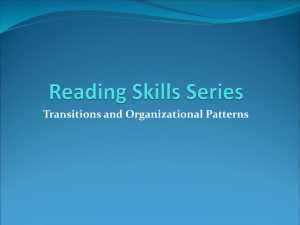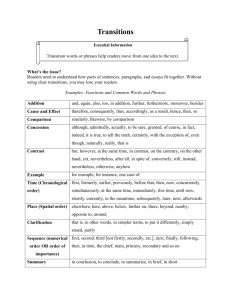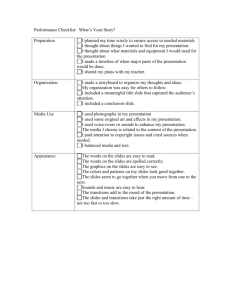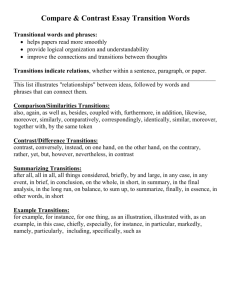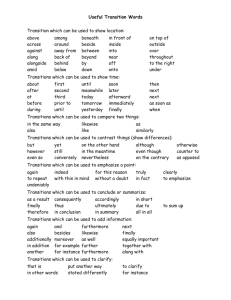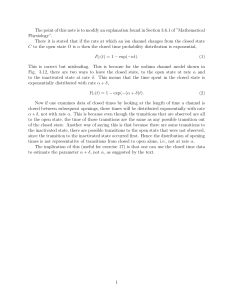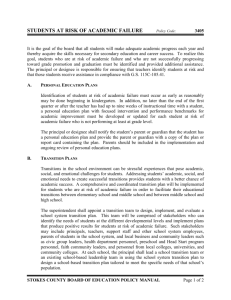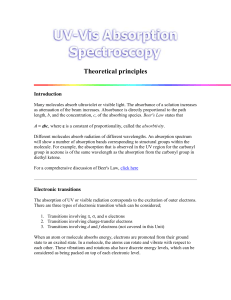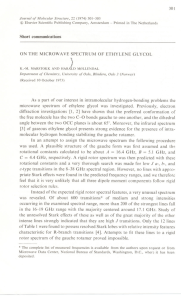Transitions
advertisement
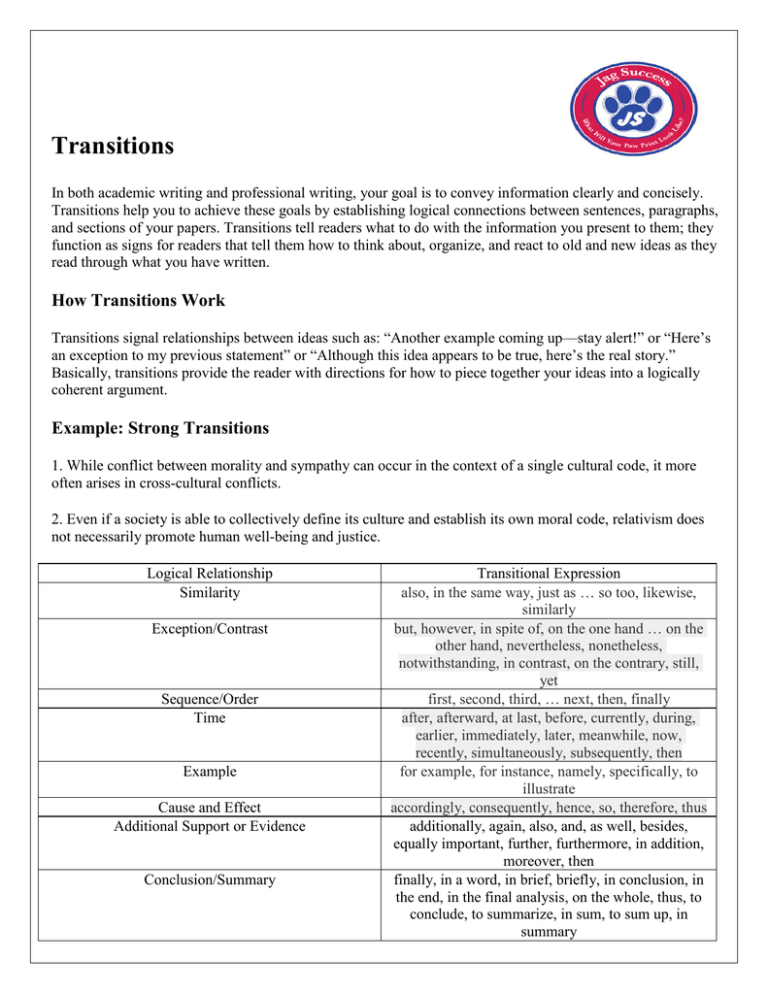
Transitions In both academic writing and professional writing, your goal is to convey information clearly and concisely. Transitions help you to achieve these goals by establishing logical connections between sentences, paragraphs, and sections of your papers. Transitions tell readers what to do with the information you present to them; they function as signs for readers that tell them how to think about, organize, and react to old and new ideas as they read through what you have written. How Transitions Work Transitions signal relationships between ideas such as: “Another example coming up—stay alert!” or “Here’s an exception to my previous statement” or “Although this idea appears to be true, here’s the real story.” Basically, transitions provide the reader with directions for how to piece together your ideas into a logically coherent argument. Example: Strong Transitions 1. While conflict between morality and sympathy can occur in the context of a single cultural code, it more often arises in cross-cultural conflicts. 2. Even if a society is able to collectively define its culture and establish its own moral code, relativism does not necessarily promote human well-being and justice. Logical Relationship Similarity Exception/Contrast Sequence/Order Time Example Cause and Effect Additional Support or Evidence Conclusion/Summary Transitional Expression also, in the same way, just as … so too, likewise, similarly but, however, in spite of, on the one hand … on the other hand, nevertheless, nonetheless, notwithstanding, in contrast, on the contrary, still, yet first, second, third, … next, then, finally after, afterward, at last, before, currently, during, earlier, immediately, later, meanwhile, now, recently, simultaneously, subsequently, then for example, for instance, namely, specifically, to illustrate accordingly, consequently, hence, so, therefore, thus additionally, again, also, and, as well, besides, equally important, further, furthermore, in addition, moreover, then finally, in a word, in brief, briefly, in conclusion, in the end, in the final analysis, on the whole, thus, to conclude, to summarize, in sum, to sum up, in summary
